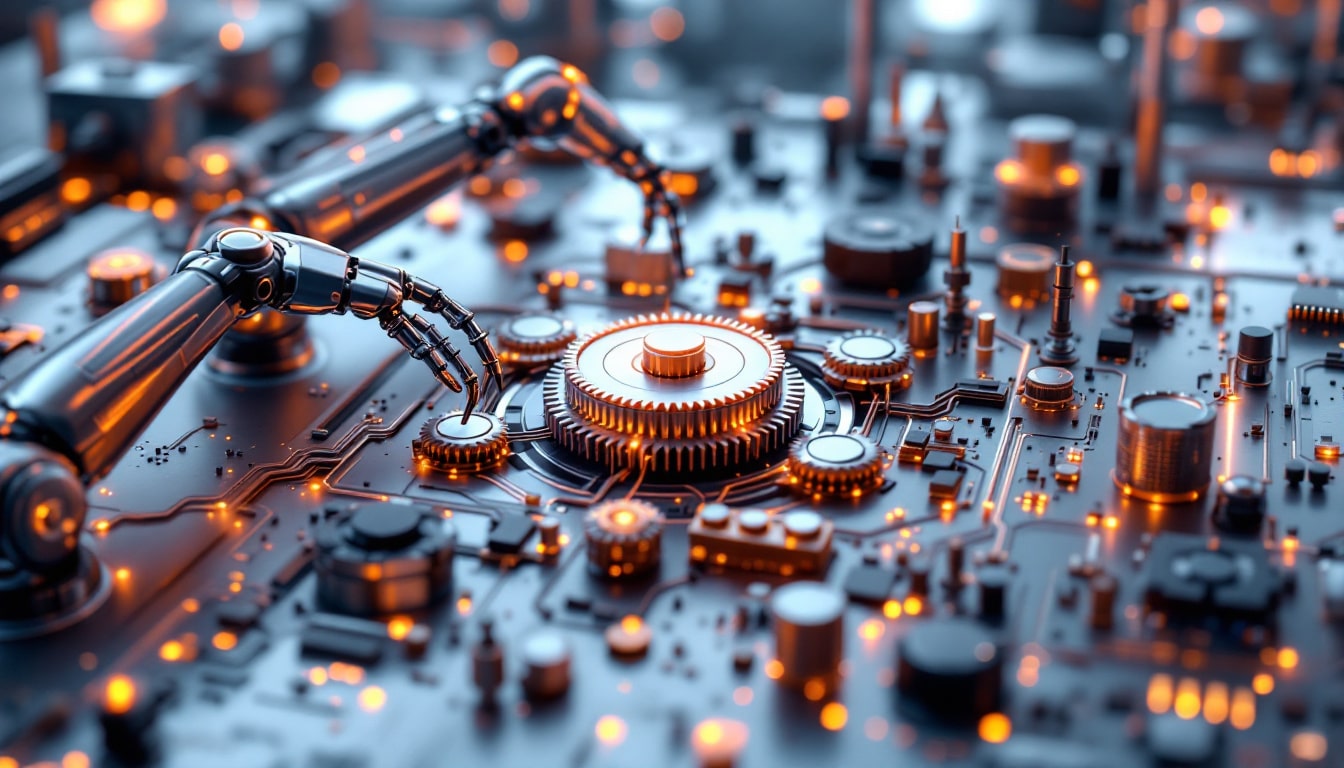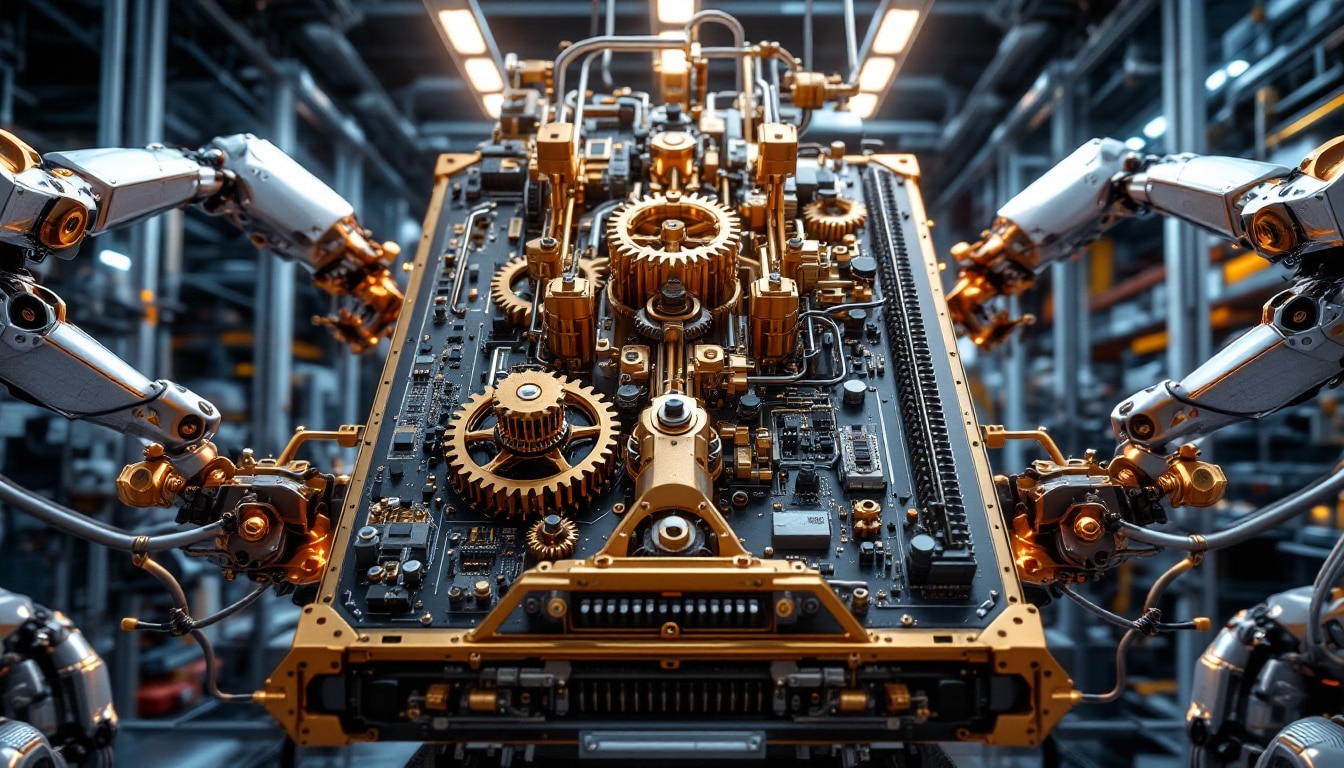Mechatronics represents a harmonious integration of mechanics, electronics, computer science, and automatic systems, thereby creating innovative solutions for various industrial applications. Conceptualized as a synergy of skills, this discipline allows for the effective design of intelligent systems, transforming production processes through its increased flexibility. It plays an essential role in the development of new technologies such as medical robotics and automation, promoting better performance and increased accuracy in contemporary applications.
Mechatronics is a multidisciplinary field that harmoniously combines mechanics, electronics, computer science, and automatic systems to create innovative solutions. At first glance, it appears as a fusion of these various components, but it is much more than that. Mechatronics represents an integrated and systemic approach that optimizes the performance of complex systems, whether they involve industrial devices, medical systems, or even the automotive sector.
Whether in industrial engineering, robotics, or automation, this discipline opens up new perspectives. Indeed, it brings a new flexibility to engineering, thereby facilitating the design and optimization of intelligent processes. A typical mechatronic product utilizes sensors to monitor real-time data, microprocessors to process this data, and actuators to act accordingly.
The applications of mechatronics continue to expand. For example, it has become indispensable for the development of medical robotics, thanks to precise control systems and efficient data management. Similarly, it plays a crucial role in the automotive industry, integrating automatic features such as advanced braking systems.
The mechatronics engineer is often considered a Swiss army knife of engineering. Equipped with knowledge in electricity, mechanics, computer science, and automatic systems, this professional is competent in managing both hardware and software, thus ensuring a strong cohesion between the two.
To learn more about the concrete applications of mechatronics, one can take an interest in the efforts of the French industrial production team, which has taken on the challenge of creating an electric tricycle for WorldSkills 2024 in Lyon.
At the heart of innovation, mechatronics also contributes to the development of the smart industry. Lisa Davis, a pioneer in this field at Siemens USA, has managed to leverage mechatronic technologies to enhance the automation and efficiency of industrial processes. Her journey is an inspiring illustration of how mechatronics can revolutionize our way of designing and interacting with advanced technologies. To learn more, you can check out the profile of Lisa Davis.
Fundamental knowledge in mechatronics is now available in various formats, from academic publications to specialized webinars like that of Mechatronics Engineering ENICARTHAGE. Exploring these resources helps better understand the impact and opportunities that mechatronics offers, both technically and economically.
In conclusion, mechatronics represents the avenue of the future both for its technical potential and for its impact on global industrialization. This discipline continues to evolve, providing dynamic and interconnected solutions that address the challenges of our time. Each advancement in mechatronics brings us closer to a world where efficiency, precision, and innovation are at the forefront of modern engineering.

Table des matières
ToggleFAQ – Understand Mechatronics at a Glance
Q : What is mechatronics?
A : Mechatronics is the synergistic integration of mechanics, electronics, automation, and real-time computer science within a unique system. It combines these disciplines to create smarter and more efficient systems.
Q : Why choose mechatronics for intelligent processes?
A : Mechatronics offers a new flexibility in engineering, enabling the design of efficient intelligent processes tailored to modern industrial challenges.
Q : What is the difference between mechatronics and electromechanics?
A : Mechatronics integrates computer science and automatic systems in addition to mechanics and electricity, while electromechanics focuses solely on electricity and mechanics.
Q : What are the fields of application for mechatronics?
A : Mechatronics is used in various fields, including automotive, medical robotics, and many other sectors requiring advanced and intelligent systems.
Q : How to learn mechatronics?
A : One can learn mechatronics through specialized university programs, such as work-study bachelor’s degrees or mechatronics engineering training that cover all the necessary basics.
Q : What job opportunities are available in the field of mechatronics?
A : Opportunities include positions such as mechatronics engineer, with prospects in technological innovation and advanced production processes.





